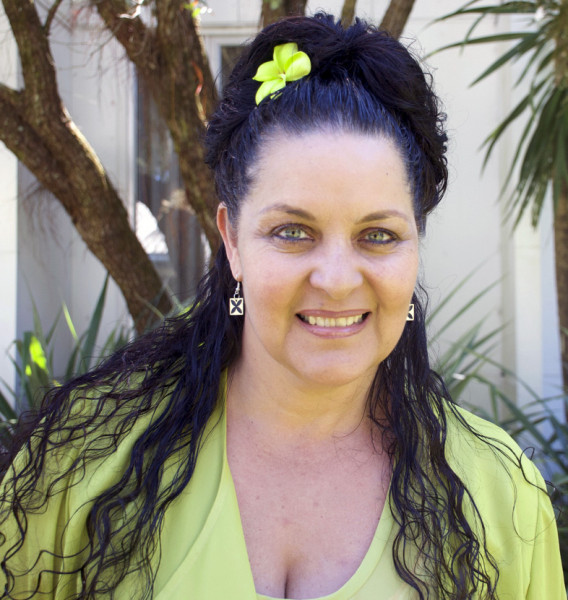Capturing diversity in governance opportunities
Capturing diversity in governance opportunities

When it comes to governance, there is not one Pacific perspective which stands out from the rest.
Pasifika Education Centre and Teaching Learning Research Initiative (TLRI) Advisory Board Member Dr Rae Si‘ilata says Pacific peoples are diverse and it is important to capture that diversity at the governance level.
“This is an indicator of the complexity and diversity of Pacific communities within Aotearoa and the Pacific,” Rae says.
“Having more Pacific Board Members can support greater privileging of Pacific worldviews in wider society.”
Of Ngāti Raukawa/Tūhourangi and Fijian heritage, Rae also connects with Samoa and Tonga through her husband and children.
Raised in Orongomai/Upper Hutt in the beginnings of the urban marae movement, Rae grew up immersed in kapa haka and Pacific dance and performance.
Rae attended Wellington Teachers College and majored in Māori Studies, Pacific Studies and Drama.
“It was a great time to be at Teachers College in the 70s – innovative and creative.”
Rae taught in Porirua, Manawatu, and Tāmaki in the 80s, then moved with her whānau to Samoa for nine years where she started a school, and where three of her five children were born.
The whānau returned to Aotearoa to live in Mangere in 1998, and Rae taught at Favona School from 1999-2006.
“I ended up at The University of Auckland studying and working in bilingualism, biliteracy and second language acquisition with practising kaiako from 2004-2020.
“I focused on Pacific language loss and revitalisation, bilingualism and biliteracy teaching and learning for Pasifika learners in my masters and doctoral study, and these foci are central to my current mahi.”
Last year, Rae left The University of Auckland to establish her own company Va‘atele Education Consulting to contract directly with the Ministry of Education in Pacific Education.
“This involves working with tumuaki/principals, kaiako/teachers and kaiawhina/teacher aides to strengthen their practice for Pasifika tamariki through their participation in the Pasifika Early Literacy Project (PELP), the Pasifika Teacher Aide Project (PTAP), and the Tautai o le Moana Research Project (ToLM).
“I also work part time at Te Whare Wānanga o Awanuiārangi supporting Māori and indigenous doctoral students in their doctoral journeys.”
Despite her busy schedule, Rae agreed to sit on both the PEC and TLRI boards when she was invited because of her passion for Māori and Pacific language/s revitalisation.
“I believe we need to push for system wide support of both te reo Māori and of Pacific languages, if we do not want our moana languages to die – which could well happen with a number of Pacific languages being highly endangered, and unless we engender greater system level support.”
There is also a need to focus on system transformation that enables Pacific languages, cultures and knowledge systems to become normalised and validated within dominant-culture spaces – having a voice at the board table means Pacific perspectives can be heard at the highest level of organisational change, she adds.
The PEC Board is specific to Rae’s area of expertise (second language acquisition and bilingualism), and the TLRI Board is a forum where she can promote system level support for Pacific specific research, particularly, research that privileges and utilises Pacific research methodologies and methods, and promotes transformational system change for Pacific communities in Aotearoa New Zealand.
Pacific people in governance roles bring multi-layered Pacific specific perspectives as well as domain specific knowledge and expertise, she says.
“Pacific people are able to lead from the heart as well as the mind, enacting their values through ethical governance.
“They are able to privilege Pacific ways of being within governance – recognising that traditionally-operated boards have often been clothed in Pālagi culture.
“Pacific perspectives and ways of being can introduce alternative governance structures that provide a range of Pacific lenses and approaches to address issues.”
Rae wears several other leadership hats, including being part of the Ohu Mātua Reference Group (Ministry of Education – Aotearoa NZ Histories Project); sitting with the National Advisory Group – ESOL (Ministry of Education, Migrant, Refugee and International Services); she is a member of the Ministry for Pacific Peoples (MPP) Fono Faufautua Languages Reference Group; and sits on the Marie Clay Research Centre Partnership Board, at The University of Auckland.
Juggling these roles can be a challenge for Rae, but she says she deals with it by being completely present in her mind when attending board meetings and leaving all other pressing demands until after the board meeting.
There are many highlights she has experienced in her work, and she has been privileged to work alongside likeminded people including researchers, facilitators, centres, schools, and communities.
This work has focused on the privileging of Pacific languages, cultures, and identities, and recognises the unique relationship between tangata whenua and tagata o le moana to enable system level transformational change.
Are you interested in contributing your governance skills and serving on boards?
The Ministry for Pacific Peoples encourages you to join its Nominations Service that maintains a database of skilled Pacific people who are available for appointment to state sector boards and committees.
